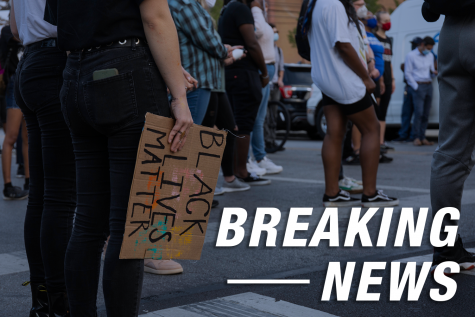BREAKING: College will establish ‘Antiracism Transformation Team’
October 8, 2020

Following an announcement of two anti-racist initiatives last month, the college today unveiled its new campuswide program to bring more focus to Diversity, Equity and Inclusion at Columbia.
In a collegewide email Thursday, President and CEO Kwang-Wu Kim announced that an Antiracism Transformation Team (ArTT) will be established and led by Raquel Monroe and Folayemi Wilson, co-directors of Academic Diversity, Equity and Inclusion.
“I hope that the entire campus community will engage with and support this important project,” Kim said in the email. “I look forward to witnessing the [Antiracism Transformation Team’s] formation and its efforts to guide and challenge the Columbia community on the pathway to becoming an anti-racist institution.”
The initiative began during the summer with 24 faculty, staff and administrators working alongside Vineburg, California-based Crossroads Antiracism Organizing and Training (CROAR) to develop a plan to move the college toward successfully being an anti-racist institution, as reported by the Chronicle Sept. 8.
“It’s not just us two, it’s actually a team of folks that make up the Planning and Design Task Force and created the mandate for the Antiracism Transformation Team, with the understanding that [the team] will decide what its goals and objectives are once they are formed,” Monroe said.
ArTT will bring together students, faculty and staff from across Columbia to lead a quality assessment of the college’s programs, departments and administration.
Monroe said these efforts are not limited to just the DEI office, rather it is a collegewide initiative and “requires the entire college in order for it to be effective.”
Members of ArTT will be selected by a subgroup of the Planning and Design Taskforce in the next few weeks, and the selected members will meet at the end of the semester to train in conjunction with CROAR in the spring. The team is anticipated to officially begin its work during the 2021-22 academic year.
“This gives us a structure from which to organize folks that are really interested in this work to do it together, collectively,” Wilson said. “I don’t think there are a lot of colleges that can say they’re taking the deep dive in the ways that we are.”
Up to this point, Wilson said the group has worked with the task force committee, faculty, students, Kim, Senior Vice President and Provost Marcella David and Chief Financial Officer Jerry Tarrer to make sure the entire college is represented. She said she hopes to also partner with members of the Board of Trustees and community organizations outside of campus.
The college also launched a new website with information about the application and nomination process for students, faculty and staff to join the Antiracism Transformation Team.
Kim said, “Our work in this area began well before a nationwide tipping point was reached this past May following the killing of George Floyd in Minneapolis,” as the college has offered initiatives in the past such as anti-racism workshops led by the People’s Institute for Survival and Beyond, an organization of community leaders who teach anti-racism workshops, dating back to 2012.
Another anti-racism initiative slated for this year is being developed by David and will allow students, faculty and staff to actively explore social justice issues through curriculum, special events, exhibitions and guest speakers.
In the Thursday email, Kim said the college’s 2015 Strategic Plan articulated a commitment to become “known as a national leader in higher education for our systemic and comprehensive commitment to diversity, equity, and inclusion as a fundamental basis for accomplishing our mission.” And since 2018, the college has made it a point to expand its DEI efforts, he said.
“For reasons that should be self-evident, advancing this work has become more important than ever,” Kim said in the email. “[The team’s] charge is to interrogate our culture, internal processes, and administrative structures. The longer-term goal is to create an infrastructure of anti-racist ideals and practices within the institution that is not dependent on particular individuals or leadership for their visibility or perpetuation.”
More updates to come.







